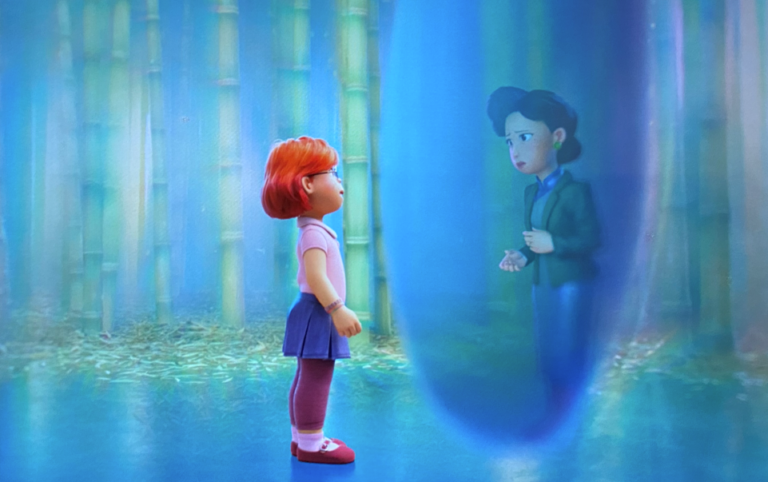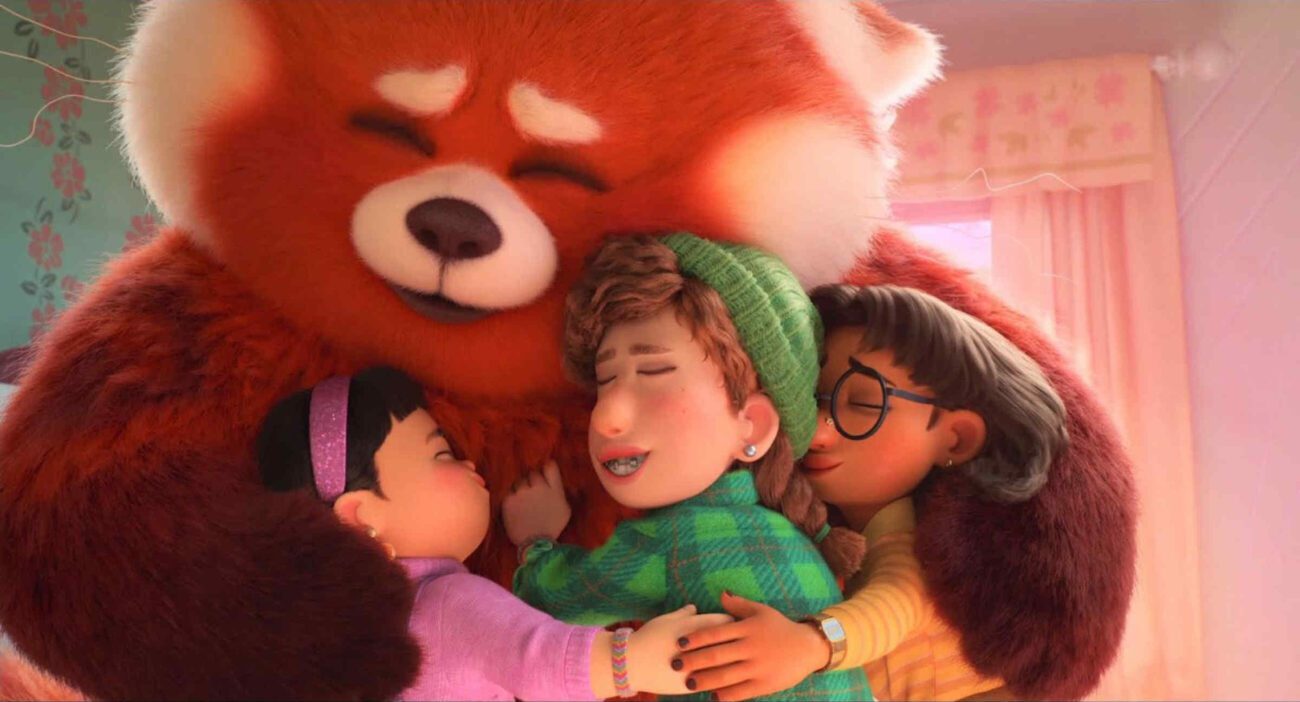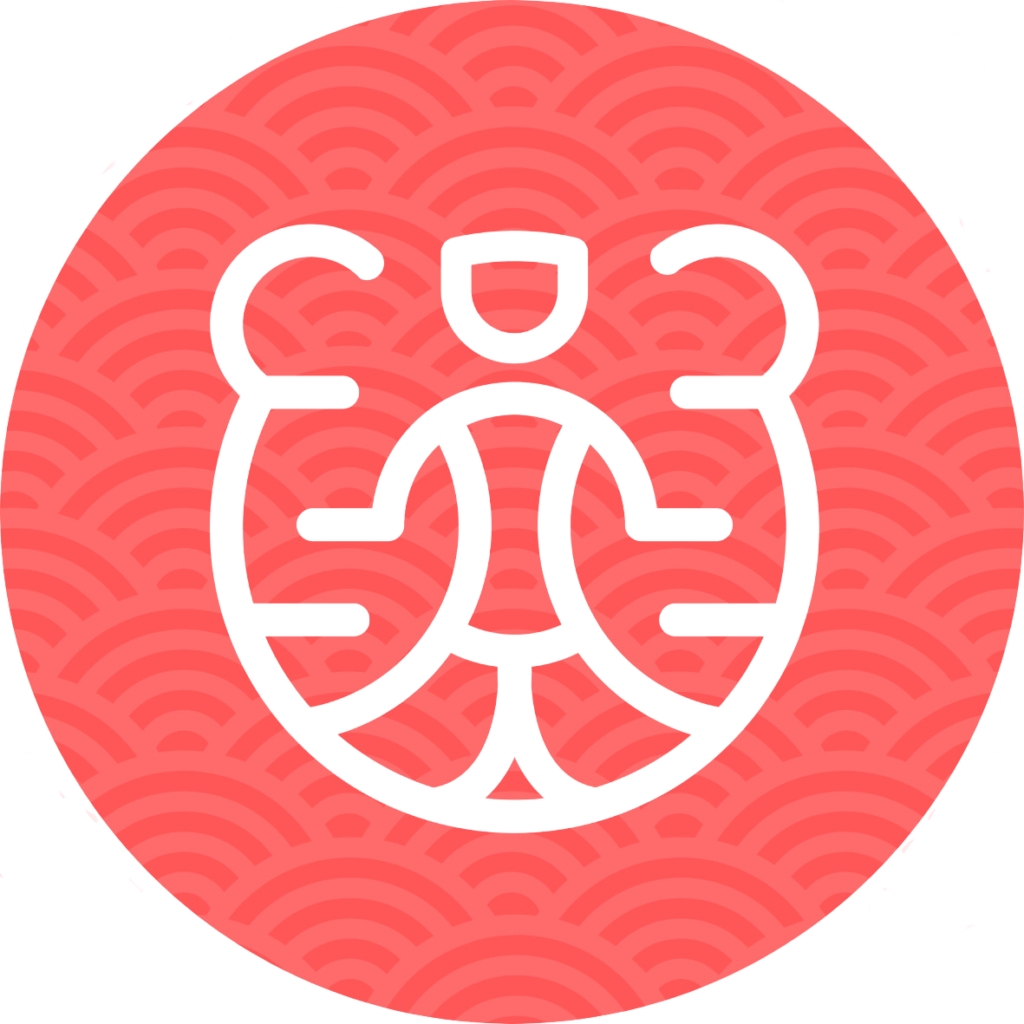“Honoring your parents sounds great, but if you take it too far, you might forget to honor yourself.”
The animated movie Turning Red is probably relatable to many of us as children of Asian immigrants. There are familiar scenes of homemade congee and freshly cut fruit, A+ test papers, strict tiger parents, overbearing aunties, strange superstitions, embarrassing culture/language/generation gaps… oh, and all the anxiety, shame, pressure, and unprocessed intergenerational trauma as well.
Meilin is a 13-year old Chinese Canadian girl trying to figure out who she is while juggling everyone else’s expectations. In order to feel a sense of belonging and acceptance with her family and community, she hides her authentic self. With her friends, she’s spunky and independent Mei, but with her family she tries to maintain the perfect persona of Mei-Mei (her parents’ pet name for her): an obedient child, a studious child, a helpful child, a child with no desires, feelings, or preferences of her own. She cannot admit to her mom that she likes the boy band 4-Town, saying that “Some of the kids at school like them” when she herself is the biggest stan. She’s ashamed that she has feelings for Devon, the teenage clerk at the convenience store, and for good reason. When Ming, Mei’s mother, discovers her romantic doodles of Devon, she drives down to the store with Mei in tow and confronts the clueless boy with the drawings, warning him to stay away from her daughter. Mei is humiliated and mortified, but she just smiles, says, “All good,” and screams into a pillow. Instead of being honest and allowing herself to get upset at her mom, Mei turns the shame inward, berating herself for being such a disappointment and even slapping herself as she looks at her reflection in the mirror.
In order to stay attached to her mother and feel safe, she has to suppress, hide, and cutoff her authentic self.
Ultimately, Turning Red is a story about our core needs for attachment and authenticity. It reveals the tension we often feel between the two and the power of healing when we can experience both in our relationships.
Doctor, speaker, and author Gabor Maté talks about these two unique needs that we have as humans: the need for attachment (the feeling of love, connection, safety, and belonging with someone else) and the need for authenticity (the capacity to know who we are, be attuned to ourselves and our bodies, and express our true selves). These are not just emotional, psychic needs, but biologically necessary for our survival as a species. We cannot survive as babies if we don’t have loving, connected caretakers to feed us, protect us, and meet our needs. We cannot survive as babies if we cannot know our own bodily sensations and emotions; if we cannot communicate our hunger, our distress, our tiredness, our need for warmth and closeness and safety. In other words, we need to be both deeply connected to others as well as deeply connected to ourselves.
Unfortunately, we are often in relationships where those two needs are in conflict. We either lose the relationships of those closest to us when we show up authentically; or our belonging is contingent upon us hiding our true selves.
Sadly, those attachments that lack authenticity are untenable.
Sooner or later, we “turn red” and the parts of ourselves that we try so hard to subdue bubble up to the surface.
The morning after the humiliating incident at the convenience store, Mei awakens as an 8-foot-tall red panda—a big, hairy, smelly, awkward beast that seemingly manifested overnight. She can return to her human form whenever she feels calm and regulated, but the moment she feels any strong emotion she transforms back into a red panda. When her mother, Ming, discovers the truth, she reveals the family secret to Mei: this happens to all the women in her family. In ancient times when the husbands and sons were away at war, the gods gave their ancestress Sun Yee the ability to harness her emotions and transfigure into a powerful red panda to protect herself, her family, and her village. Ever since then, this gift was passed down to the daughters of the family when they came of age, but over the years what was meant as a blessing became a curse. The women in her family found a way to cure themselves and banish their inner red pandas: on the night of a red moon, they could undergo a ritual that would trap their panda spirits in a talisman for good.
The message we receive about our authentic self is often similar. It is seen as a source of shame. It is something that must be hidden, controlled, and expelled rather than something to integrate, accept, and celebrate. It’s not until Mei’s friends see her for who she is and tell her that they love her, “panda or no panda,” that she learns to manage her emotions more easily. Whenever she feels like she’s about to lose control and go all panda on everyone, she visualizes the love, safety, and affirmation of her friends. The panda is no longer something that she has to be afraid of or something that she has no control over. She is able to embrace it and regulate it. In fact, she discovers that she likes being a big red panda sometimes. She’s brave, strong, funny, wild, and free in ways that she could never be as goody-two-shoes Mei-Mei.
Sadly, that’s not what many of us experience with our family or parents. Just like Mei, the message that we receive is that we are not good enough, we can’t be trusted, we must be controlled—exactly the same message that Ming received from her own mother.
That is how intergenerational trauma works, passing on from one generation to the next until someone decides to face it and heal. In a heart-to-heart talk with Mei the night of the ritual, her dad reminds her that people have messy sides to them; sometimes the answer isn’t to banish the beast, but to make room for it. As Mei reflects on all the things she loves about her panda spirit, she makes the radical decision to keep it instead of splitting from it. She runs off in the middle of the ritual and meets up with her friends at the 4-Town concert. Her rebellion unleashes Ming’s inner panda, a gargantuan Kaiju monster that chases down Mei at the concert and wreaks havoc and chaos. This is what happens when unhealed trauma goes underground and unaddressed—it never really goes away. It just comes back as an out-of-control beast. We try to silence and suppress it, but it inevitably rears its head, especially when our children trigger us.
Later, in the mystical bamboo forest, Mei meets her mother Ming’s inner child. Ming is able to show her vulnerability, revealing her shame for having hurt her own mother and her fears of never being good enough. Mei is able to show compassion to her mom and guide her reconcile with her grandmother, even while standing her ground and refusing to give up her panda.
“I’m finally figuring out who I am. But I’m scared it will take me away from you.”
This is where Ming has a choice to make. Will she demand that Mei give up her panda as a condition of her acceptance? Or will she release her expectations and choose to embrace all of Mei, even the messy, dark, beastly parts?
Ming finally gives Mei her blessing to be her authentic self, panda and all. “Don’t hold back yourself for anyone.”
In the end, Ming is able to give Mei what she has needed all along—the affirmation that she is loved and accepted, just as she is.
“I see you.”
“I’m sorry.”
“I’m proud of you.”

Take a moment to imagine your parents saying this to you. Or imagine yourself speaking this to your inner child.
How powerful and healing it is when we can experience BOTH attachment and authenticity. We feel safe to show up as ourselves. We can embrace all the messy, complicated parts of ourselves without judgment or shame. We can meet our children’s need for belonging and authenticity. We can make sure that with us, they don’t have to choose between the two.
Turning Red is a moving story of intergenerational healing but, let’s be honest, not all of us get to experience that fairy tale ending where our parents are able to love and accept our authentic selves. We cannot force them to do the healing work. They must choose to face their own inner panda and inner child. They must choose whether or not they will accept ours.
But even if our parents can never offer us the safety of authenticity, we can find that community elsewhere, just like Mei did with her friends. We can surround ourselves with people who love us fully and completely, without conditions. We deserve to have relationships that offer us belonging when we show up as our true selves, even (and especially) when we “turn red.”
May we be like Meilin Lee and be bold enough to choose our authentic self AND authentic community. May our families heal so that honoring our parents doesn’t mean that we cannot honor ourselves.


One Response
Thank you for this really thoughtful write up! I’ve just stumbled across your website and it’s amazing.